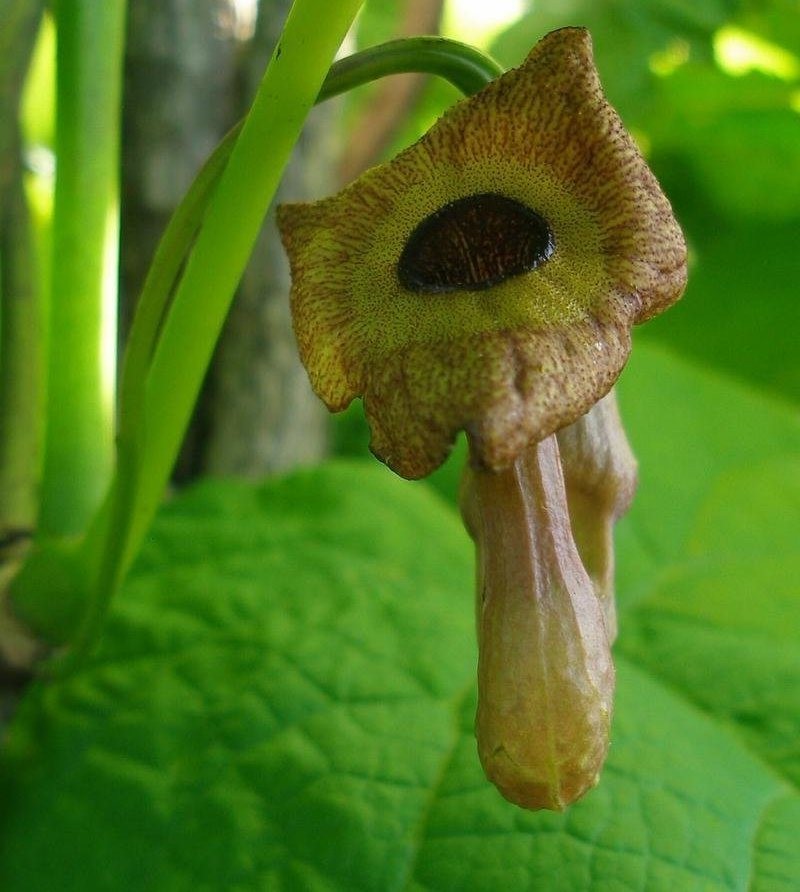Dutchman's pipe
(Aristolochia iquitensis)

Description
Aristolochia macrophylla, Dutchman's pipe or pipevine, is a vine native to the eastern United States. Aristolochia macrophylla belongs to the plant family Aristolochiaceae and is found primarily along the Cumberland Mountains and Blue Ridge Mountains in the eastern portion of the United States, as well as Ontario, Canada. This species of plant has received considerable attention in the past few decades for the discovery of a potent compound called aristolochic acid, which has been the focus of debate due its harmful side effects. Aside from its decorative qualities, owing to its large leaves and dense growth, it is cultivated in gardens because it is a larval host for the pipevine swallowtail, Battus philenor. This vine is a flowering plant that can grow up to 9 metres (30 ft) at a relatively fast rate. In the early stages of its development, the vines of Aristolochia macrophylla are very stiff and rigid, but as the plant develops, the vines become much more flexible and stable. This is because the plant is composed of sclerenchymatous cortical tissue, which has an outer cylinder, or layer, as well as an inner cylinder. Years of research showed that it is the outer sclerenchymatous cylinder that gives the stems of this plant its mechanical stability. This species flowers between the months of June and August in the U.S. with its seeds ripening in September and October. The large heart-shaped leaves can range between 15–30 cm (6–12 in). These dark green leaves can overlap and cover an arbor or trellis. Plants can also be used to provide extensive covers for pillars, sun porches, fences, walls as well as other things. Aristolochia macrophylla is native to the southeast of the United States, however it is also found in the northeast, as well as Ontario, Canada. This plant species resides largely in the Cumberland and Blue Ridge Mountains of southeastern United States. They are native to wooded slopes, gaps, as well as ravines which are mainly in the Cumberland and Blue Ridge Mountains from West Virginia, to Kentucky, Tennessee and northern Georgia. Pipevine eventually spread to other parts of the eastern coast of the United States. Aristolochia macrophylla is naturally found in light sandy soil, medium loamy soil and heavy clay soils, with a preference for drained soils. This species is also primarily found in alkaline soils with high pH.
Taxonomic tree:







